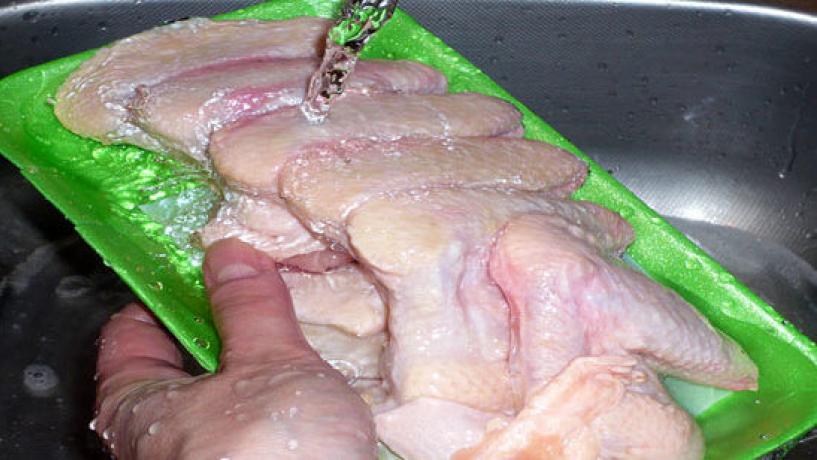
A recent report released by the Food Safety Information Council (FSIC) showed that 60% of home cooks in Australia are putting themselves and their loved ones at risk by washing whole poultry before cooking.
The danger comes from bacteria spreading around the kitchen causing cross-contamination of other food and non-food items.
The survey found that 6 out of 10 people wash whole chickens, 5 out of 10 wash chicken pieces with skin on, and 4 out of 10 wash skinless chicken pieces.
What are the dangers associated with eating raw chicken?
Recent investigations doing that 84% of raw chicken carcasses tested positive to the food poisoning bacteria Campylobacter and 22% to Salmonella. Notified cases of food poisoning from these bacteria have almost doubled over the last 20 years, with an average of 220,000 reported per year in recent years. From those incidents, around 25% can be attributed to the person eating chicken meat.
FSIC released some tips for preparing poultry safely. They recommend the following:
- Do not wash raw poultry before cooking as this will spread any bacteria throughout your kitchen. You can mop up any excess moisture with a paper towel
- Always wash and dry hands and clean surfaces after contact with raw poultry
- Defrost poultry in the fridge or microwave in a container which prevents juices from dripping onto other food
- Make sure the raw poultry juices do not contaminate other food, especially food like desserts or salads that won't be cooked again
- Always use clean plates and utensils and wash and dry thoroughly between using for raw and cooked poultry. Never place cooked food back on the same plate or cutting board that previously held raw poultry
- Cook any poultry meat to 75C using a meat thermometer in the thickest part or until the juices run clear and are no longer pink. Make sure frozen poultry is defrosted right through to the centre before cooking




